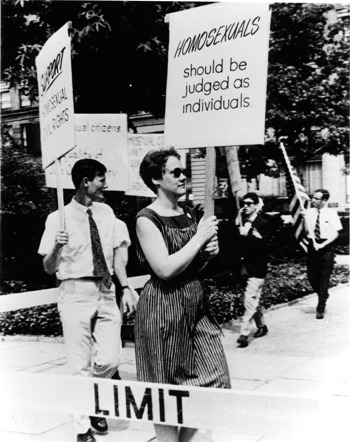Una, duey, trey, quater, chinker, sey, setter, otto, nobber, dacha. You have probably guessed that these are numbers from one to ten, but it is hard for you to guess in which language. It is a lexicon language called Polari, that has now largely fallen out of use, but it was used by gay men in the United Kingdom when homosexuality was decriminalized, until 1967.
Before the decriminalization of homosexuality, being gay in Britain could make you a criminal, and you could face prison sentences of up to two years. Men convicted of homosexual acts were subjected to brainwashing techniques and in some cases were also subjected to chemical castration.
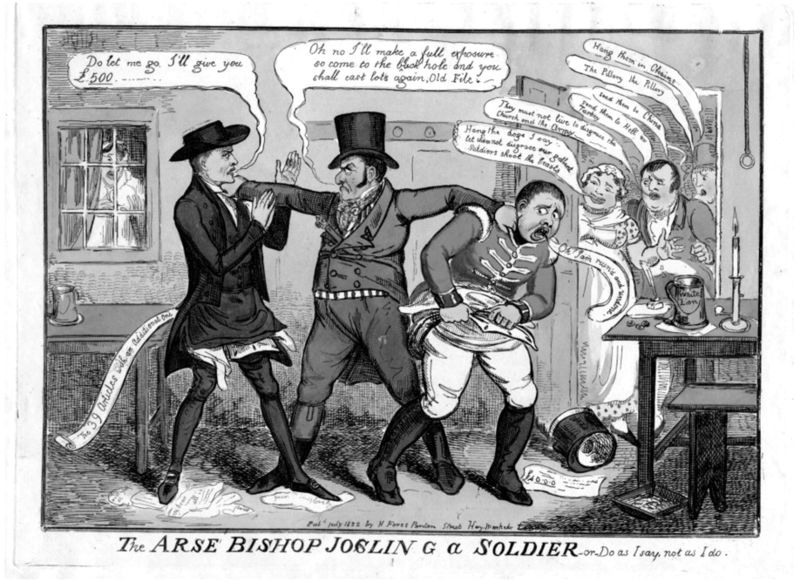
As reported by the BBC, the most common form of treatment was aversion therapy, the kind seen in Stanley Kubrick’s film A Clockwork Orange. Those who volunteered for such therapies, often in preference to jail terms, were shown pictures of naked men and given a series electric shocks or drugs to make them vomit. When they couldn’t stand it, they were shown pictures of naked women, or films of nudist colonies, as a relief from the pain – or, in some cases, they were taken out on “dates” with young nurses.
These cruel treatments were the reason the British gay community was forced to find an alternative way to communicate without being understood, and that alternative was the lexicon language called Polari.
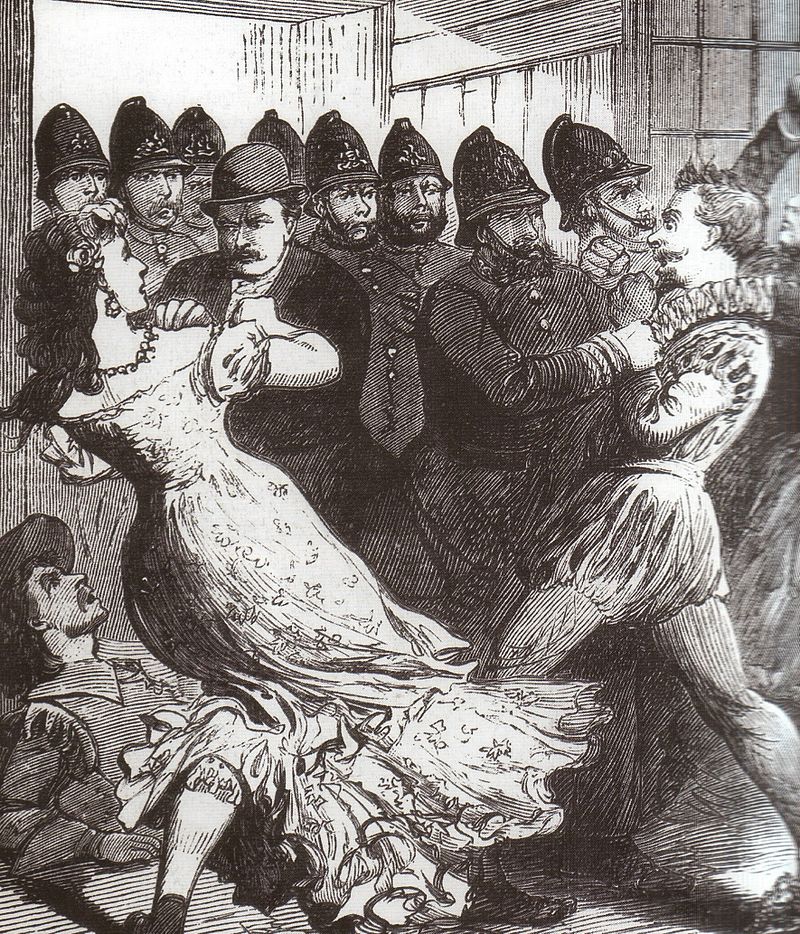
It is said that the origins of Polari can be traced back to the 18th century and possibly the 16th century. It was commonly used by carnival workers, actors, prostitutes, British merchant navy sailors, and criminals.
This lexicon language is a mixture of Italian, London slang, backslang, rhyming slang, sailor slang, thieves’ cant, Yiddish language and later drug subculture slang. Reportedly, it developed from a language called Parlyaree that was used by sailors around the Mediterranean.

The Guardian reports that many Polari words are recognizable: aqua, manjaree, vada, bona, omi, even polari itself. You can probably guess at their meanings: water, food or to eat, look or see, good, man, and talk. Anyone who speaks Portuguese, Spanish, French or Italian will be similarly well-placed. Polari enabled one gay man to identify another, allowed them to express themselves publicly without fear of arrest or reprisal and provided a vocabulary for talking about gay sex and sexuality.
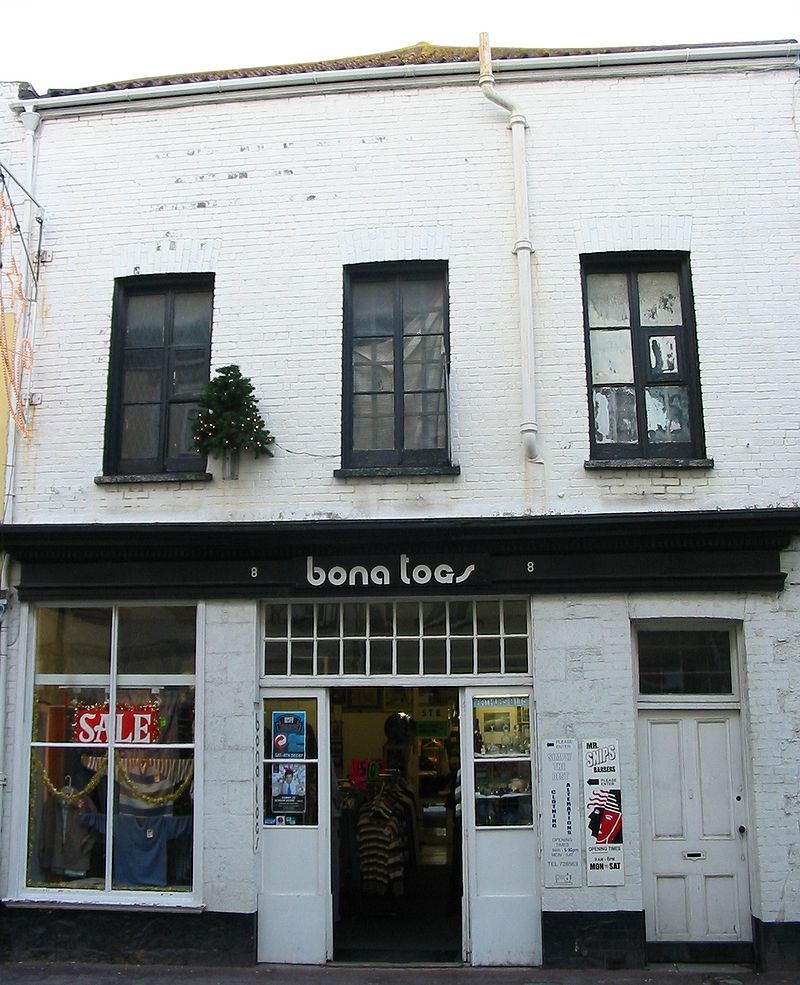
Polari was popularized in the 1960s, thanks to the BBC radio comedy program Round the Horne. Hugh Paddick and Kenneth Williams starred as Julian and Sandy, who spoke a version of Polari. The radio show was quite popular, with nearly 10 million listeners waiting for the show to start every Sunday at 2:30 pm. This radio comedy program that popularized Polari also played a crucial role in establishing the gay culture within the public consciousness.
Polari began to fall out of use after the 1967 Sexual Offences Act which made homosexuality legal, so there was no need for an alternative secret language.
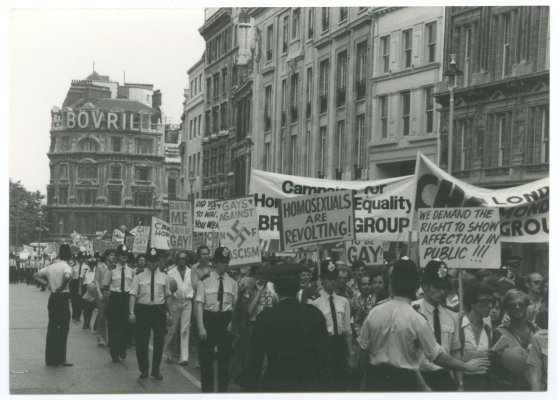
The English singer and gay rights activist, Morrissey, released a compilation album Bona Drag (Polari for “nice outfit”) in 1990.
Polari also appeared in David Bowie’s 2016 song “Girl Loves Me,” in his final album. In 2015, filmmakers Brian Fairbairn and Karl Eccleston wrote and directed Putting on the Dish, a short film made entirely in Polari.
